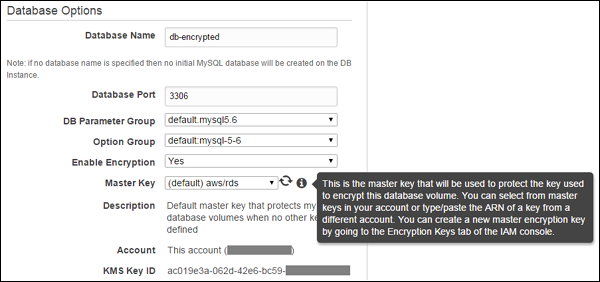Amazon RDS
About Amazon RDS
Amazon RDS Pricing
Amazon RDS is free to try, and users only pay for what they use.
Starting price:
$0.01 per month
Free trial:
Available
Free version:
Available

Most Helpful Reviews for Amazon RDS
1 - 5 of 211 Reviews
Justin
Computer Software, 51 - 200 employees
Used unspecified
OVERALL RATING:
5
Reviewed May 2021
Amazon RDS User Review
Trang
Verified reviewer
Computer Software, 1,001-5,000 employees
Used daily for more than 2 years
OVERALL RATING:
5
EASE OF USE
5
VALUE FOR MONEY
5
FUNCTIONALITY
5
Reviewed December 2019
Manage database services solution for AWS Cloud
We use RDS with PostgreSQL and MySQL as our backend database for our Application hosted in AWS, they are located in a private VPC and only allow access from our backend subnet.
PROSRDS allows us easy to create and manage a relational database for our Application hosted in AWS. It supports many different instance type, engine and scale option to select. RDS works well with VPC to keep our database private and only allow to access from specify sources. It has a lot of monitor metrics such as CPU utilization, free storage, freeable memory and read/write latency and well notification system to keep track of our database. Excellent backup, snapshot and restore support by AWS
CONSManage RDS's parameter is quite complex since it does not have good UI support. It lacks support tool to run SQL command directly from AWS console
Reason for choosing Amazon RDS
We consider using our self manage databases install in EC2 but come up with RDS as it provides the high ability and scalable, it also saves us effort on configuring, install and manage database
David
Verified reviewer
Computer Software, 51-200 employees
Used daily for more than 2 years
OVERALL RATING:
4
EASE OF USE
3
VALUE FOR MONEY
4
CUSTOMER SUPPORT
3
FUNCTIONALITY
4
Reviewed April 2022
High quality, bulletproof managed database service
We use Amazon RDS to manage our key production/transactional databases for our customer-facing applications as well as our development environment, internal ERP, etc. We definitely gain value and efficiency from not having to deal with the management of yet another server - and its operating system, patches, uptime, etc. - it is a real boon to simply have a database-as-a-service that we spin up, connect to, and work with, letting AWS deal with all the management.
PROSAWS RDS allows us to deploy databases easily and efficiently with great resilience, scalability, and security - but without having to deal with managing a server. RDS makes it easy to spin up a new database, have multi-availability zone replicas, back it up, and do many other things. It's also dead easy to upgrade software versions - simply let AWS look after it.
CONSBeing a managed database service there are restrictions; for instance, with SQL Server you don't have the sysadmin role and you can't set any trace flag you want. You can adjust a number of parameters in the RDS console but only those which AWS have explicitly added support for. There are other caveats and restrictions for other DBMS products too. Another thing I don't like is when you change your instance size it takes a long time - but at least there's no downtime. Also, tooling is restricted. A lot of great tools to dig into performance and query tracing won't work with the AWS caveats so you have to use the AWS RDS console and logs and it can be more tedious to really drill into application performance bottlenecks.
Reason for choosing Amazon RDS
Ultimately, despite being a Microsoft environment historically, our developers felt AWS provided superior tooling and functionality.
Reasons for switching to Amazon RDS
We wanted to move from on-premises to the cloud.
Anonymous
11-50 employees
Used free trial
OVERALL RATING:
3
EASE OF USE
4
VALUE FOR MONEY
4
CUSTOMER SUPPORT
3
FUNCTIONALITY
4
Reviewed April 2018
Amazon RDS is really simple and lightweight.
Amazon RDS is really simple and lightweight. It is easy to use and scale up in the cloud. Easy to setup.
CONSI have not used Amazon Relational Database extensively, so I did not find any drawbacks forAmazon Relational Database.
Anonymous
201-500 employees
Used daily for more than 2 years
OVERALL RATING:
4
EASE OF USE
4
FUNCTIONALITY
4
Reviewed April 2022
Simplifies a lot of database management work
Overall, Amazon RDS has been very useful to us. It has saved us tremendous amounts of time just in the provisioning, scaling, and maintenance activities alone.
PROSI like how easy it is to scale RDS up and down alongside its monitoring features which can be conveniently accessed via AWS console.
CONSThe burst balance limit for the underlying EBS disk gave us lots of problems. I wish this feature was more user-friendly.
Reason for choosing Amazon RDS
Our main tech infra runs on AWS already.
Reasons for switching to Amazon RDS
In my previous companies, we used to self-host databases (postgres, MySQL/MariaDB) in VMs. This was more expensive in the long run in terms of time spent. We also used Google Cloud SQL for some projects but eventually switched to RDS since our main tech infra runs on AWS.





